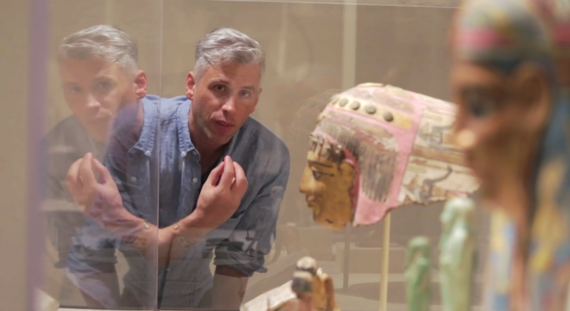This week my free online course will launch. Entitled "The Bible's Prehistory, Purpose, and Political Future," the course is offered through Coursera and the prestigious Emory University, which is world-renown for its graduate programs in Biblical Studies (the largest in the USA). It's one of its first course offerings on religion and its very first on the Hebrew Bible as a whole.
The course addresses the paramount question of the Bible's raison d'être -- its why and wherefore. The first two weeks treat the history and archeology of ancient Israel, and the subsequent weeks examines how the biblical authors tell their history and interpret their past. Along the way, I conduct interviews with a number of leading biblical scholars and archeologists.
The thesis of the course is that the Bible emerged in response to disaster and devastation. If it were not for cataclysmic loss--if the kingdoms of Israel and Judah had continued to flourish--there would be no Bible. Many of the Bible's sources already existed long before the Babylonians razed Jerusalem to the ground. But there is a significant gap between the original contours of these sources and the shape they are given by the biblical authors.
Defeat may have destroyed a state, but thanks to the vision of the biblical authors, it recreated a people.
The biblical project is truly remarkable. Nowhere else in the ancient world do we witness such an elaborate effort first to portray the history of one's own defeat and then to use this history as a means of envisioning a new political order. This course takes students through the bold moves with which the Bible achieves its goals.
In keeping with its hope-filled perspective, the Bible lays out a roadmap to a brighter future in which corporate concerns and the common good determine daily practices and public policies: transparency and open access to information; division of powers; written law codes; environmental sustainability; universal education; justice for the orphan, widow, and alien; protection of the one from the many; long life rather than heroic martyrdom; and many other enduring values that grow out of a sense of fraternity and a consciousness of being one people.
Many of these moral principles have been deeply absorbed into our identities. In this course I reveal how they first emerged in response to societal collapse. If I am right, they demand our renewed attention in this time of global instability and great uncertainty about our future.
You can take it for credit and a diploma. Or you can just watch the lectures at leisure and take the quizzes for fun, without anyone knowing how well you did -- or didn't do.
To find out more, visit the course site.

